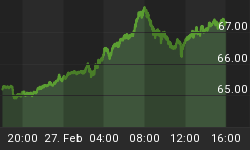As a part-time member of the press corps, I had the good fortune to attend many of the public sessions at last week's G-20 meeting in Pittsburgh. As impressive as it was to closely witness the gathering of countries representing some 85 percent of the world's GDP (along with the governors of the World Bank, the IMF and the European Central Bank), it was equally remarkable to witness the immense security forces deployed to restrain those who feel the gathering harbored the forces most responsible for the world's economic and financial problems.
The meeting got off to an unexpectedly gloomy start as President Obama, accompanied by UK Prime Minister Gordon Brown and French President Nicholas Sarkozy, jointly announced the discovery of secret Iranian nuclear facilities. These revelations were eye opening, and the mood in the room was nothing short of electric. This contrasted sharply with comments offered the day before by Russian President Dmitri Medvedev, who reiterated his country's reluctance to impose tougher sanctions on Iran. As a result, the risks of continued conflict in the Middle East remain a global preoccupation, with major implications for the prices of gold and oil.
But despite the geo-political setbacks, the failure to achieve any major agreements, the somber atmosphere, and the sanguine final communiqué, the U.S. stock and junk-bond markets continued to roar in nervous volatility.
U.S. markets appear to have taken on a casino-like life of their own, while the fundamentals and even some technical measures urge caution - such as the U.S. dollar plummeting to new lows. Something just does not add up. This feeling may have been the root cause of the somber mood enveloping the G-20.
Increasingly, there appears to be a distinctly volatile disconnect between market sentiment and practical reality. It is eerily similar to the market of 1931, which presaged the second of six major downturns of the Great Depression, leaving U.S. stock markets at only 10 percent of their pre-crash values.
There are a number of concerns that have caused some of the world's shrewdest observers to be less than completely credulous about the current 'recovery.' I have repeatedly echoed these factors in my columns: continued weakness in the labor market, lack of funds for discretionary spending, the rising trajectory of debt and mortgage defaults, moribund corporate earnings, and the diversion of bank credit away from corporate borrowers to interest-bearing Fed accounts. But no amount of outcry from the skeptics seems to sway the official narrative: 'recovery is on its way.'
In the meantime, the U.S. government continues to increase its deficits, heralding a new monetary age where 'trillion' has become the new 'billion.' The dollar continues to sink to levels which now threaten its privileged position as the world's reserve. If such status is lost, the Fed will no longer be able to print limitless dollars while holding interest rates at historic lows - without facing monetary collapse. Soon, the era of low interest rates could be over.
Furthermore, the world's three largest holders of U.S. Treasuries, China (with some $800 billion), Japan ($740 billion) and Great Britain ($220 billion), may soon need access to their funds. The UK deficit is now 10 percent of GDP, making him prone to selling his U.S. Treasuries. Japan is slipping into recession and may need its dollars for internal stimulation, as might China.
On that note, I noticed that my former parliamentary colleague, Prime Minister Brown, looked a bit shell-shocked at the G-20. Perhaps this resulted from Britain's unfortunate decision to have sold the bulk of its gold reserves for U.S. dollars while gold was still trading in the $700's!
From a technical point of view, U.S. stock and junk bond markets have risen dangerously without correction, but still just short of the rebound level of a Dow 10,000 that I predicted for August. Nonetheless, these markets look vulnerable.
The unease is felt on Main Street U.S.A and in the backrooms of the G-20. It's a shame that Washington and Wall Street haven't gotten the memo.
For a more in-depth analysis of our financial problems and the inherent dangers they pose for the U.S. economy and U.S. dollar, read Peter Schiff's 2008 bestseller "The Little Book of Bull Moves in Bear Markets" and his newest release "Crash Proof 2.0: How to Profit from the Economic Collapse." Click here to learn more.
More importantly, don't let the great deals pass you by. Get an inside view of Peter's playbook with his new Special Report, "Peter Schiff's Five Favorite Investment Choices for the Next Five Years." Click here to dowload the report for free. You can find more free services for global investors, and learn about the Euro Pacific advantage, at www.europac.net.















